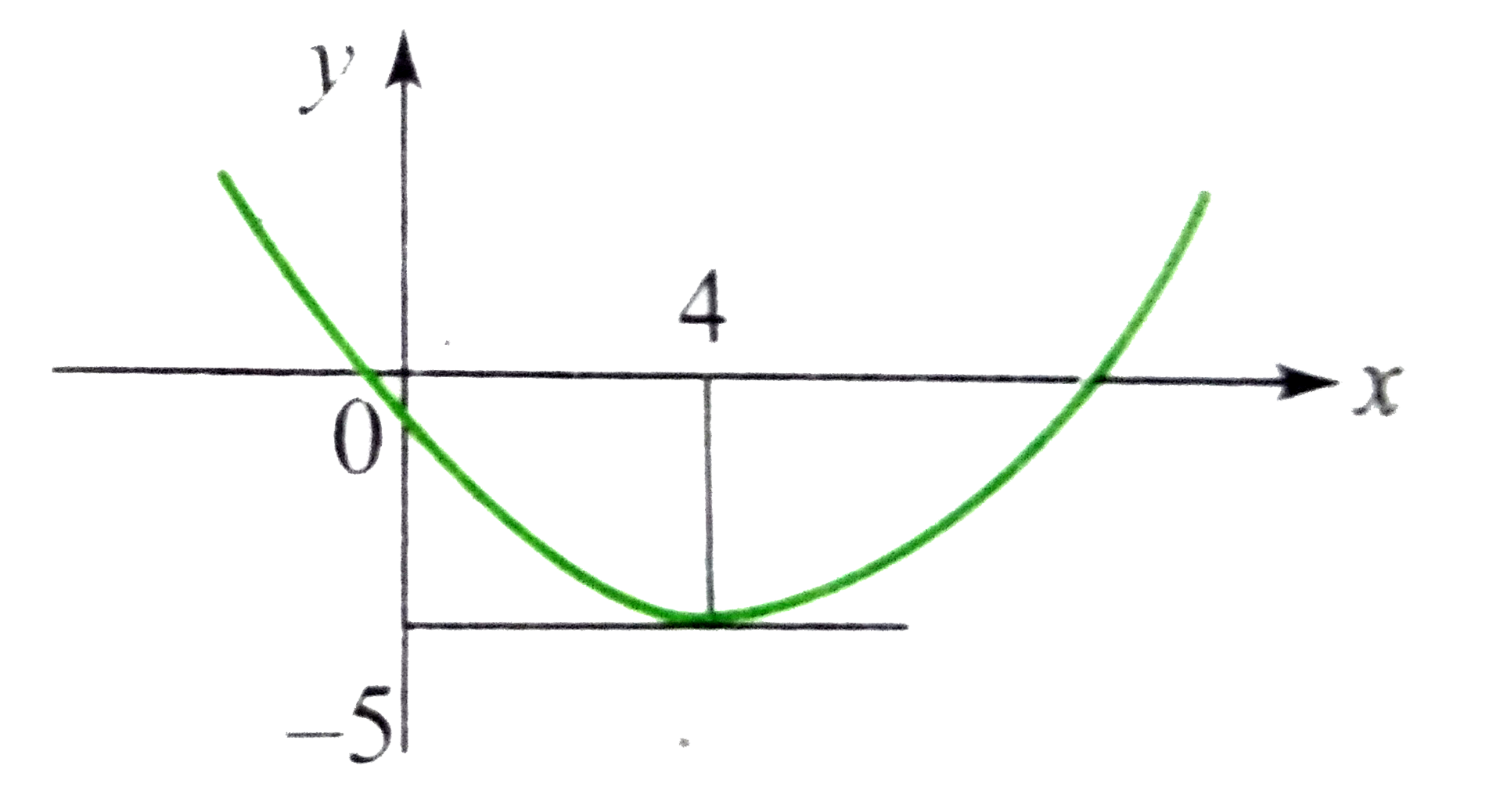The graph of the quadratic trinomial u=ax2+bx+c has its vertex at (4, -5) and two x-intercepts, one positive and one negative. Which of the following holds good? a>0 b. b<0 c. <0 d. 8a=b
a>0
b<0
c<0
8a=b
The correct Answer is:1,2,3
From figure,
a>0
−b2a=4or−b2a>0
∴b<0
f(0)=c<0
Also , −b2a=4or8a+b=0

Topper's Solved these Questions
- THEORY OF EQUATIONSBOOK - CENGAGECHAPTER - THEORY OF EQUATIONSEXERCISE - Exercise (Comprehension)
37 Videos
- THEORY OF EQUATIONSBOOK - CENGAGECHAPTER - THEORY OF EQUATIONSEXERCISE - Exercise (Matrix)
6 Videos
- THEORY OF EQUATIONSBOOK - CENGAGECHAPTER - THEORY OF EQUATIONSEXERCISE - Exercise (Single)
89 Videos
- STRAIGHT LINESBOOK - CENGAGECHAPTER - STRAIGHT LINESEXERCISE - JEE Advanced Previous Year
4 Videos
- THREE DIMENSIONAL GEOMETRYBOOK - CENGAGECHAPTER - THREE DIMENSIONAL GEOMETRYEXERCISE - Question Bank
20 Videos
Similar Questions
Knowledge Check
Suppose a parabola y=ax2+bx+c has two x intercepts, one negative, and its vertex is (2,-2). Then which of the following is true ?
Aab>0Bbc>0Cac>0Da+b+c>0Suppose a parabola y=ax2+bx+c has two x intercepts, one positive and one negative, and its vertex is (2,-2). Then which of the following is true ? (A) ab > 0 (B) bc > 0 (C) ca > 0 (D) a + b + c > 0
Aab>0Bbc>0Cca>0Da+b+c>0
If the quadratic equation ax2+bx+c=0(a>0) has sec2θandcosec2θ as its roots, then which of the following must hold good? (a.) b+c=0 (b.) b2−4ac≥0 (c.) c ≥4a (d.) 4a+b≥0
View SolutionThe graph of a quadratic polynomial y=ax2+bx+c(a,b,c∈R) with vertex on yaxis is as shownin the figure. Then which one of the following statement is CORRECT?(A) Product the roots the corresponding quadratic equation is positive.Aof of(B) Discriminant of the quadratic equation is negative.(C) Nothing can be the sum of the roots, whether positive, negative or zero.definite said about(D) Both roots of the quadratic equation are purely imaginary.
View SolutionIf a and b are positive integers, x and y are non-negative integers and a = bx + y, then which one of the following is correct ?
View SolutionIf the roots of the quadratic equation (a−b)x2+(b−c)x+(c−a)=0 are equal , prove that b+c=2a
View SolutionIf one of the zeroes of a quadratic polynomial of the form x2+ax+b is the negative of the other, then it
View SolutionUsing number line, how do you compare
(a) two negative integers? (b) two positive integers?
(c) one positive and one negative integer?
View Solution
